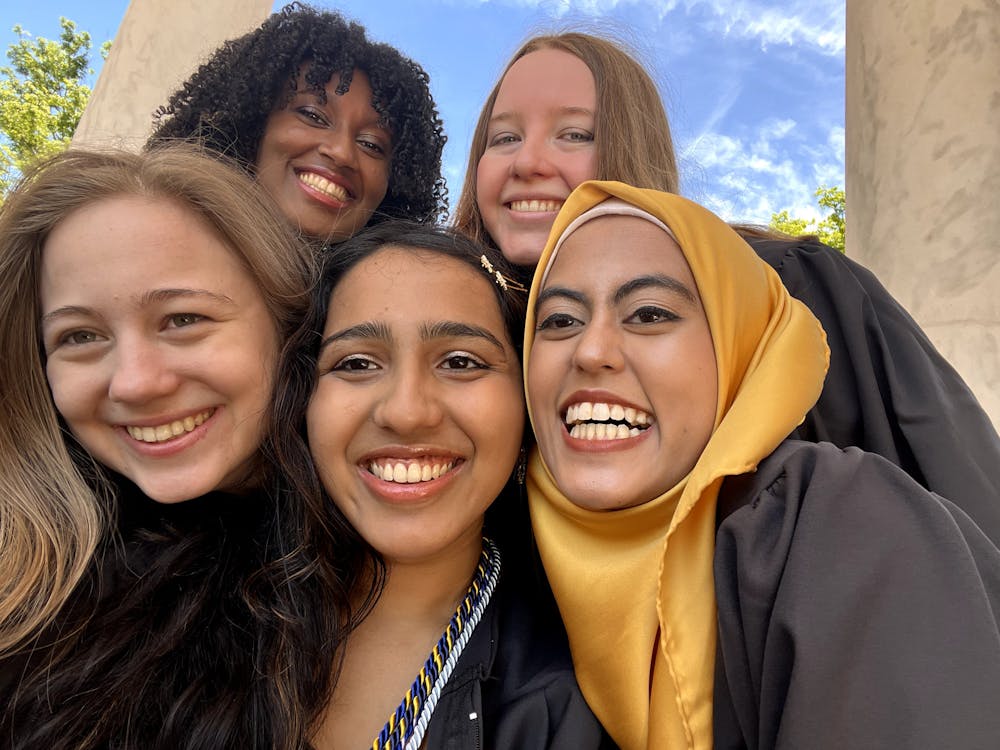Growing up, I got the impression that people expected me to eventually choose between studying the humanities and science. However, I’ve always felt an equally strong affinity for both. Even in my undergraduate days, which are coming to a close now, I decided to major in both Writing Seminars and Molecular and Cellular Biology (MCB), because I couldn’t imagine not having either discipline as a part of my life.
Unfortunately, my majors are valued very differently in society. When talking to family friends or relatives, my performance in math and science were always praised, while my performance in English or other humanities classes were often made incidental. But The Writing Seminars department was the main draw of Hopkins for me when I was deciding which college to attend.
In high school, creative writing was one of my favorite hobbies, but I never had a chance to formally study it. Once I got here, my Writing Seminars classes quickly became the highlights of my week. Part of it was just the difference in class size. The introductory MCB classes are so large that it can sometimes be hard to feel like part of a community. Writing Seminars classes are very intimate and tight knit by nature because of the small number of students and the discussions on fiction and poetry, which are highly personal.
But I do love science and human health, and I found that I flourished best where I could find niches that intersected the humanities and health. One of my best friends, an Anthropology and MCB major, and I joked that we were “STEManitarians” — not only science, technology, math and engineering (STEM) students but humanitarians too.
There are a surprising number of places where the humanities and science cross paths at Hopkins if you go looking for them. Some of my favorite classes have been in the Medicine, Science, and the Humanities department. I took a book club over Intersession during my freshman year, where we read The Emperor of All Maladies by Siddhartha Mukherjee, and it remains one of my favorite experiences here. History of Medicine is another class that I recommend to broaden your view of medicine today. The News-Letter, especially, has been a place to relish just how integral writing and communicating are to science and medicine.
The United States is in the midst of a scientific communication crisis. Part of the problem, in my opinion, is that science can feel exclusionary if you don’t know the lingo.
I recently presented some of my research at the DREAMS Spring 2022 conference. I found that where I thought I could start explaining my research was never where I actually had to begin. Instead, I always had to take a few steps back to give the necessary background to make my work accessible to a general audience.
The way we talk about science as a society needs work, as well as the baseline level of science we teach in our school systems. I see my pursuit of the humanities as critical to being a scientific communicator, not only because studying the humanities makes me a better writer and thinker, but also because the humanities, specifically creative writing, keep me focused on the language I use to communicate.
I’ve recently made concrete something I’ve always known at some level. I want writing to be part of my career. There is a tradition of physician-writers: Nawal El Saadawi, Abraham Verghese, Anton Chekhov, Michael Crichton and Khaled Hosseini among others. I want to follow in their footsteps, but to be honest, I’ve always worried that I wouldn’t be able to make time to write during medical school. In The Writing Seminars, we talk about your “writing practice”: how often you write and how you do it when you do it. My writing practice is still very sporadic: in bursts, often spurred by deadlines. But by talking to my friends and professors, I’m slowly figuring out strategies to change that so I can keep being a writer.
Graduation feels unexpectedly abrupt to me -- like I’ve turned the last page of a book without realizing I’ve hit the Acknowledgements section already. I’m ready to be done, but I’m also acutely aware of all the opportunities I’ve missed alongside the ones I’ve taken. Saying I’m a work in progress feels horribly cheesy and cliche, but it’s true that I’m still figuring out who I am and what kind of writer I am and can be. It’s a process that will probably never end, and I wouldn’t want it to anyway.





